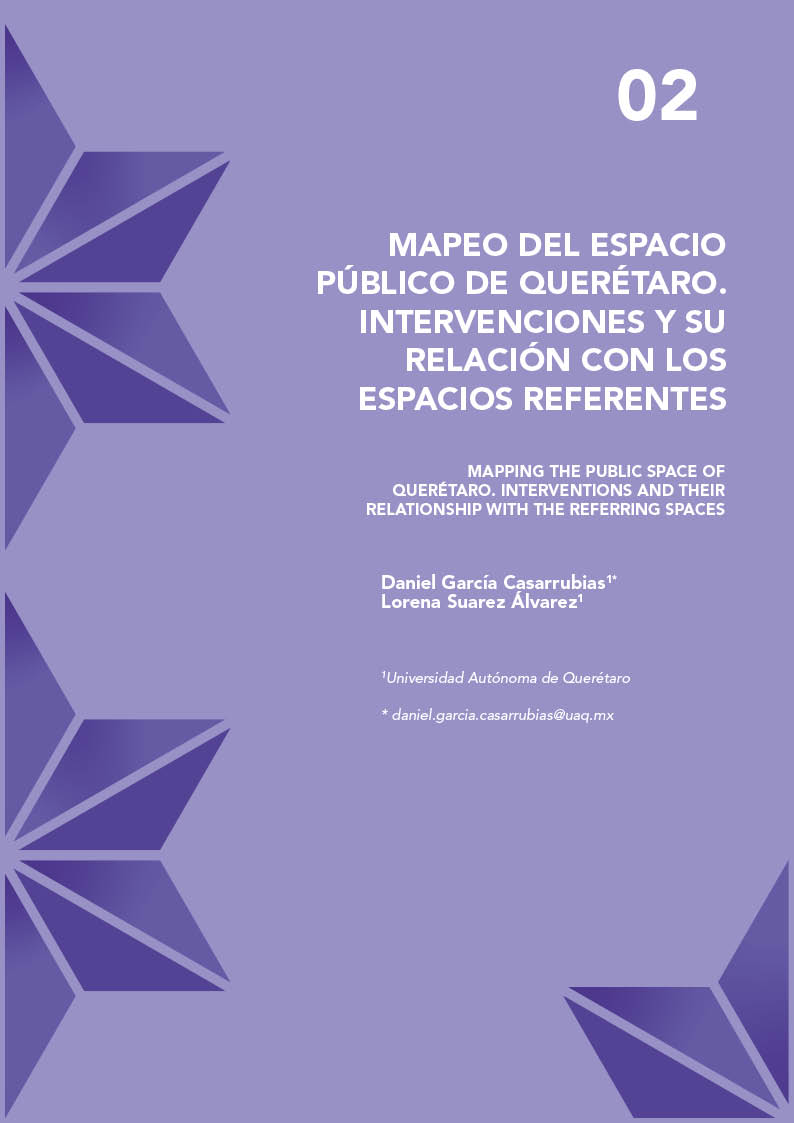Abstract
The objective of this work is to study the interventions and marks on the city of Querétaro. It locates and registers all the marks, from subtle interventions such as graffiti, to those that change the space as a whole. It also identifies the relationship between the location and nature of the marks in the public space and the places that are referents in it, whether architectural sites with cultural relevance or with some kind of authority. Finally, the way in which the users of the area interact with its elements is discussed, the dynamics of power and appropriation as a motivator of the interventions and their consequences for both the users and the intervening subjects are glimpsed. Understanding the dynamics that favor these interventions will allow the creation of public policies that will improve coexistence in common use spaces and that will serve as a thermometer of society's feelings. This work is part of a larger research that seeks to identify the behavioral elements that can be intervened to improve the use of the environment in tune with specific contexts.
References
Gobierno de México, «Reporte anual 2018,» Gobernación, CDMX, 2018.
M. Delgado, El espacio público como ideología, Madrid: La Catarata, 2011.
H. Tajfel, «Social categorization and intergroup behaviour,» European Journal of Social Psychology, p. 149–177, 1971.
H. Tajfel, Teoría de la identidad, Chicago: Nelson Hall, 1986.
L. Wirth, «El urbanismo como modo de vida,» The american Journal of sociology, 1938.
H. Lefebvre, La producción del espacio, Paris: Anthropos, 1974.
J. Q. Wilson y G. L. Kelling, «Ventanas rotas,» The Atlantic Monthly, 1982.
G. LeBon, Psicología de las masas, Paris: Le ersen, 1890.

This work is licensed under a Creative Commons Attribution-NonCommercial-ShareAlike 4.0 International License.
Copyright (c) 2023 Perspectivas de la Ciencia y la Tecnología

